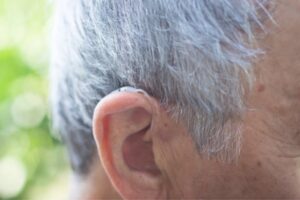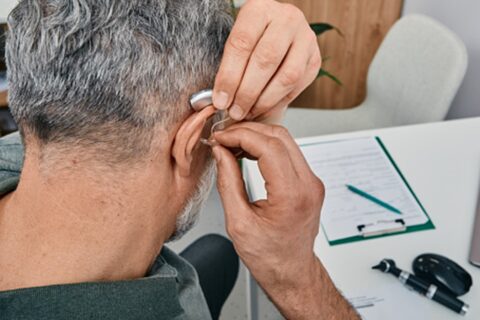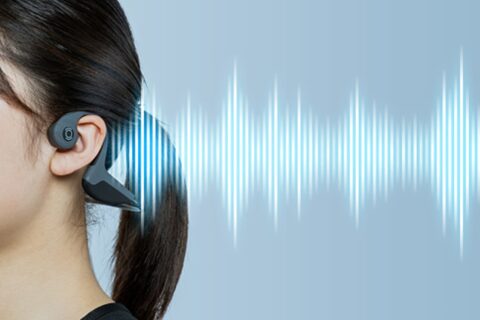Hearing Aid Options

Approximately 15% of American adults (37.5 million) aged 18 and over report some trouble hearing, and for many, it can have a significant effect on their quality of life. Diminished hearing can create difficulty communicating with others, leading to social isolation, loneliness, frustration, and depression. Hearing loss is also associated with cognitive impairment and decline.
Over 95% of people with hearing loss could benefit greatly from a hearing aid. Today’s hearing aids are extremely effective, helping people to hear better and more clearly, and participate more fully in conversations. However, only about one out of five people who would benefit from a hearing aid actually uses one.
Many people still think of hearing aids as large, uncomfortable, and very visible devices from decades ago. However, modern digital technology allows for much smaller and more comfortable styles of hearing aids — and many are nearly invisible. Additionally, digital hearing aids now have advanced feedback controls that stop the whistling noise and other feedback often associated with older hearing aids.
Hearing aids are medical devices worn behind or in the ear. They can improve hearing by amplifying sound. While they don’t usually restore hearing to normal levels, they can make significant improvements. Hearing aid technology is rapidly advancing, and modern options include a myriad of styles to fit your lifestyle. There are four main types of hearing aids:
- Behind-the-ear (BTE) aids: These hearing aids are generally the largest hearing aid style. They consist of a plastic case containing electronic parts that rest behind the ear and are connected to an earmold that fits in the ear canal. This type of hearing aid is easy to clean and easy to handle and relatively sturdy.
- Receiver-in-canal (RIC or RIE) aids: In this type of hearing aid, a small wire connects the aid to a tiny speaker that sits in the ear canal. It is less visible than a BTE-style hearing aid and can be more comfortable.
- In-the-ear (ITE) aids: With this type of hearing aid, all parts are contained in a custom-fit shell that sits completely in the outer ear.
- In-the-canal (ITC) aids & completely-in-the-canal (CIC) aids: With this type of hearing aid, all parts are contained in a custom-fit shell that sits partly or completely in the ear canal. people may like them because they are less noticeable while other people may find them harder to handle.
Recently, new federal legislation made hearing aids available over the counter. While we support greater access to hearing aids, we highly recommend seeking consultation with a licensed hearing healthcare professional who can perform a thorough hearing evaluation to ensure there’s no underlying cause of your hearing loss that might require medical attention. Additionally, your audiologist has specialized training to ensure proper fitting and settings; for example, too much amplification may cause discomfort and additional hearing loss.
When you visit the Florida Gulf Coast Hearing Center, your audiologist will perform a thorough ear examination of the entire ear, including the outer ear, ear canal, eardrum, and middle ear. Then you’ll undergo a rigorous diagnostic hearing evaluation to assess the sensitivity of your hearing at different frequencies. Depending on these findings, other tests may be conducted. Your audiologist will then recommend hearing aid options that will work best for you.
During your consultation and exam, take this opportunity to ask the following questions:
- What styles and features would fit my daily needs?
- What is the total cost of the hearing aid?
- What are the benefits of newer technologies?
- Is there a trial or adjustment period for me to try out the hearing aid?
- How should I care for my hearing aid?
Treating hearing loss is vital for communicating with family, friends, and co-workers. You will benefit from improved health and well-being and improve your quality of life.


